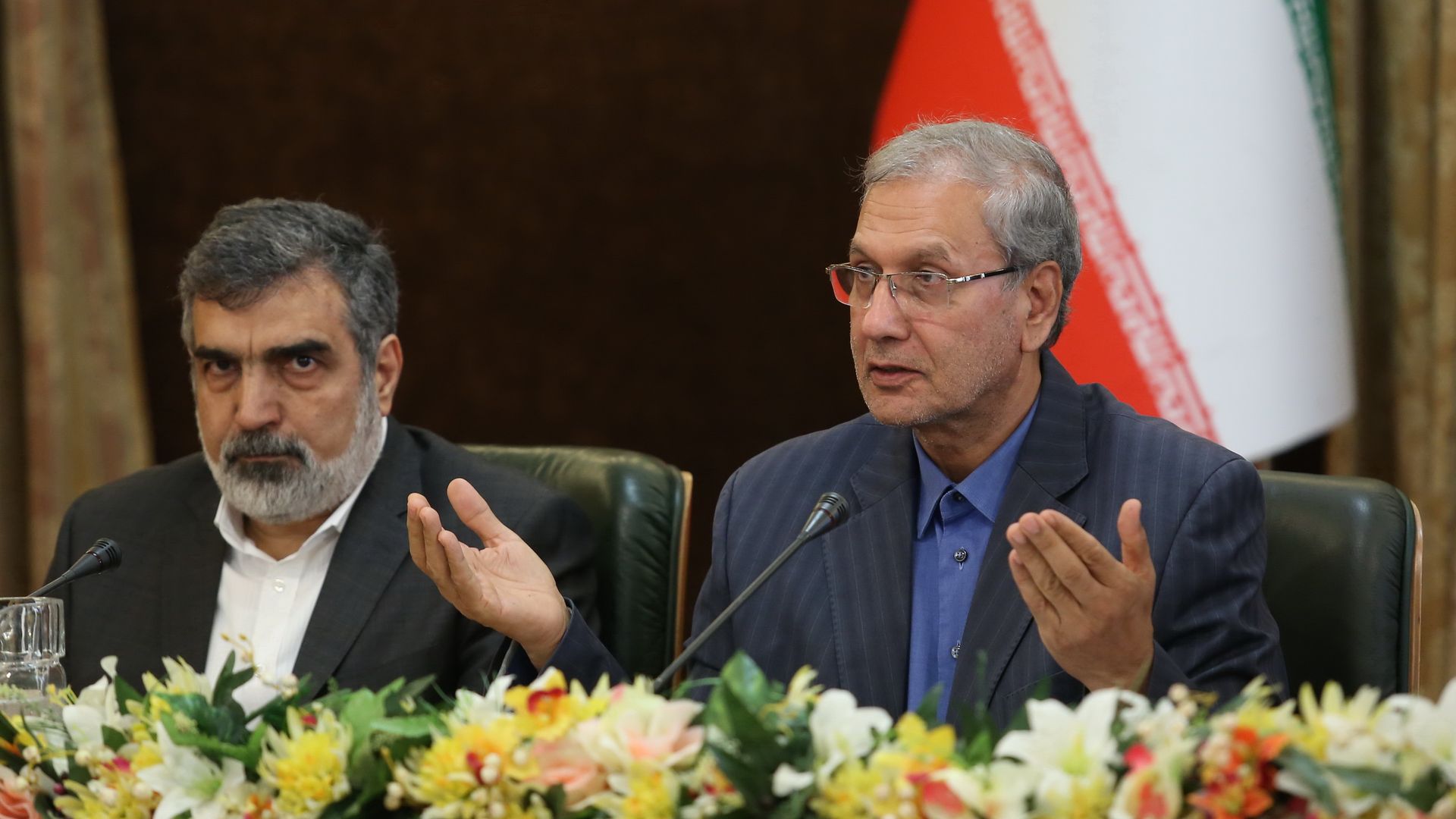Iran's nuclear escalation raises stakes for U.S. and Europe
Add Axios as your preferred source to
see more of our stories on Google.

Iranian Atomic Energy Organisation spokesman Behrouz Kamalvandi and government spokesman Ali Rabiei at a press conference in Tehran on July 7. Photo: Iranian Presidency/AFP/Getty Images
Iran's announcement that it's stepping up uranium enrichment levels to 5% follows its breach of the 2015 nuclear deal's stockpile limits and marks its latest escalatory gambit to secure economic relief from Europe, sanctions reductions from the U.S., or both.
Why it matters: For a year after the U.S. withdrew from the Joint Comprehensive Plan of Action (JCPOA), Iran stuck to the agreement, hoping its compliance would be reciprocated by other signatories' initiatives. With Europe's special trade mechanism slow to come together, Tehran is stepping up enrichment to raise the costs of European delay and American escalation. Yet each new measure increases the possibility of a U.S. or Israeli military strike against Iran.
Where it stands: Breaching the 300 kilogram limit on low-enriched uranium earlier this month was a fairly modest, reversible first step; increasing enrichment levels beyond the 3.67% allowed under the deal begins to chip away at the deal's non-proliferation gains. But the move is still more of a warning sign than a meaningful step toward a bomb.
What to watch: There are 3 likely scenarios.
- Fearful of a growing crisis, Europe seeks to mediate between Washington and Tehran. In a July 6 phone call with his Iranian counterpart Hassan Rouhani, French President Emmanuel Macron discussed the prospects of resuming nuclear talks. That would almost certainly require Iran's return to compliance with the deal and a U.S. commitment to some sanctions relief, though the latter seems unlikely.
- Should that fail, Europe could condemn Iran's latest move while treating it as an act of diplomatic brinkmanship rather than a non-proliferation crisis. In turn, it could expedite work on financial channels to appease Iran and keep the agreement from fully unraveling.
- Dissatisfied with European and the U.S. responses, Iran breaches more sensitive parts of the deal, such as enriching to 20% or limiting access by international nuclear inspectors. Europe could then initiate the JCPOA's dispute resolution mechanism for non-compliance, eventually leading to the reimposition of sanctions against Iran. The breaches also could trigger a U.S. or Israeli military operation against Iranian nuclear facilities.
The bottom line: The U.S. withdrawal from the JCPOA did not kill the deal, but new sanctions have made it difficult for anyone else to save the accord. As the Trump administration's maximum pressure campaign continues, it leaves fewer and fewer off-ramps from potential confrontations.
Robert Malley is president and CEO of the International Crisis Group, where Ali Vaez directs the Iran Project.

